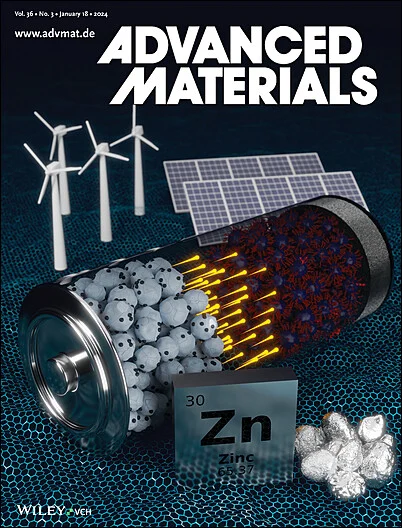Modular Molecular Editing of End-of-Life PBT for High-Performance Sustainable and 3D-Printable Platforms
IF 27.4
1区 材料科学
Q1 CHEMISTRY, MULTIDISCIPLINARY
引用次数: 0
Abstract
Engineering polyesters, particularly poly(butylene terephthalate) (PBT), are widely used but generate significant waste, with limited recycling options. Existing mechanical and chemical recycling strategies struggle to sustainably and efficiently reuse PBT, resulting in product performance degradation and making the recycling process more costly than the upstream synthesis routes for raw materials. Inspired by DNA editing technologies in molecular biology, a modular molecular editing strategy is proposed to sequentially modify the backbone and end groups of end-of-life PBT, transforming it into a high-performance, sustainable, and 3D-printable poly(butylene adipate-co-terephthalate) (PBAT) platform. Unlike traditional commercial PBATs that produce only single components, this platform surpasses them in tensile strength and toughness without requiring additional additives and features programmable properties for diverse applications, including injection-molded parts, 3D-printed components, films, packaging, fibers, and fabrics. The industrial scalability of this strategy is validated through successful 100-L pilot-scale production. The resulting PBAT allows closed-loop polymer-to-polymer recycling by reintroducing PBT or monomers, thereby enhancing its social sustainability. When recovery is no longer feasible, the materials remain ecologically sustainable through composting, avoiding harmful environmental accumulation. This work achieves a direct polymer-to-polymer conversion of end-of-life PBT into high-performance materials, with techno-economic analysis highlighting both environmental and economic advantages.

用于高性能可持续和3d打印平台的寿命结束PBT的模块化分子编辑
工程聚酯,特别是聚对苯二甲酸丁二酯(PBT),被广泛使用,但产生大量废物,回收选择有限。现有的机械和化学回收策略难以持续有效地再利用PBT,导致产品性能下降,使回收过程比上游原料合成路线成本更高。受分子生物学中DNA编辑技术的启发,提出了一种模块化的分子编辑策略,对报废PBT的主链和端基进行顺序修饰,将其转化为高性能、可持续、可3d打印的聚己二酸丁二酯(PBAT)平台。与仅生产单个组件的传统商用pbat不同,该平台在抗拉强度和韧性方面超越了它们,无需额外的添加剂,并且具有可编程特性,适用于各种应用,包括注塑件、3d打印组件、薄膜、包装、纤维和织物。通过成功的100升中试规模生产,验证了该策略的工业可扩展性。由此产生的PBAT通过重新引入PBT或单体,实现了聚合物对聚合物的闭环回收,从而提高了其社会可持续性。当回收不再可行时,材料通过堆肥保持生态可持续性,避免有害的环境积累。这项工作实现了废弃PBT直接聚合物到聚合物转化为高性能材料,技术经济分析突出了环境和经济优势。
本文章由计算机程序翻译,如有差异,请以英文原文为准。
求助全文
约1分钟内获得全文
求助全文
来源期刊

Advanced Materials
工程技术-材料科学:综合
CiteScore
43.00
自引率
4.10%
发文量
2182
审稿时长
2 months
期刊介绍:
Advanced Materials, one of the world's most prestigious journals and the foundation of the Advanced portfolio, is the home of choice for best-in-class materials science for more than 30 years. Following this fast-growing and interdisciplinary field, we are considering and publishing the most important discoveries on any and all materials from materials scientists, chemists, physicists, engineers as well as health and life scientists and bringing you the latest results and trends in modern materials-related research every week.
 求助内容:
求助内容: 应助结果提醒方式:
应助结果提醒方式:


